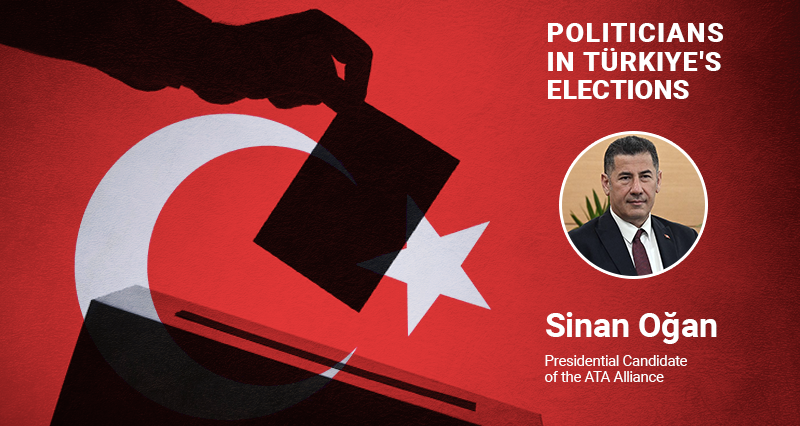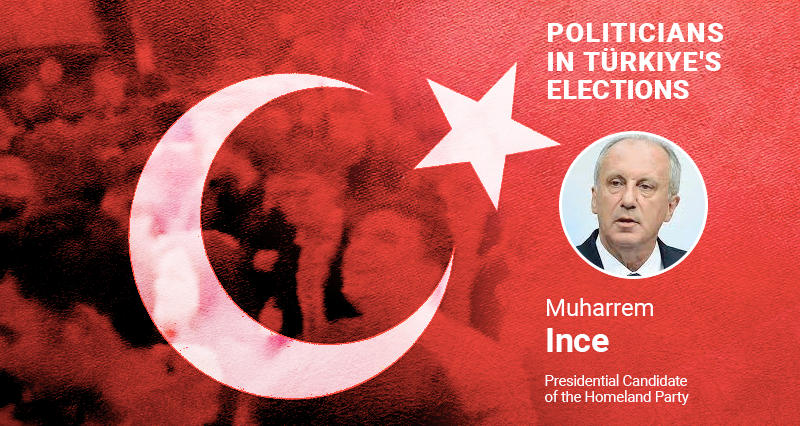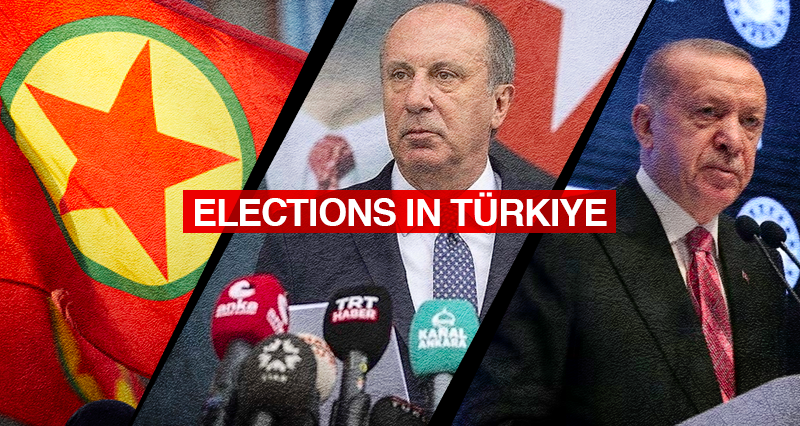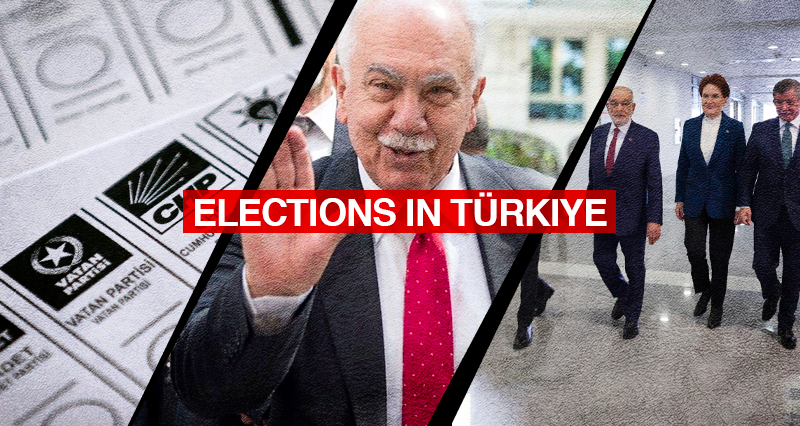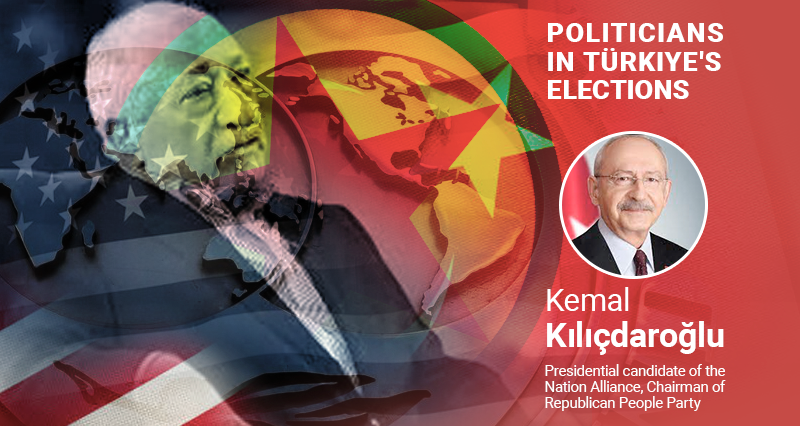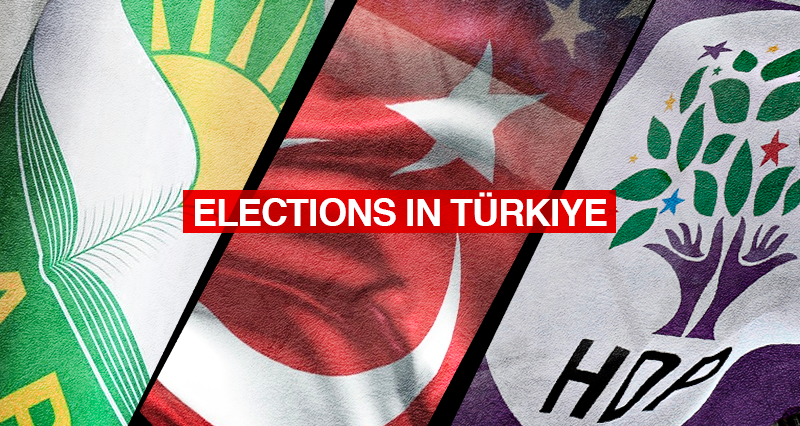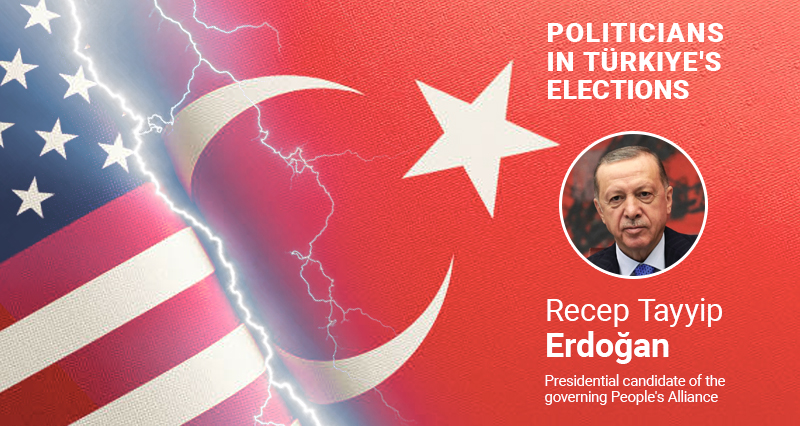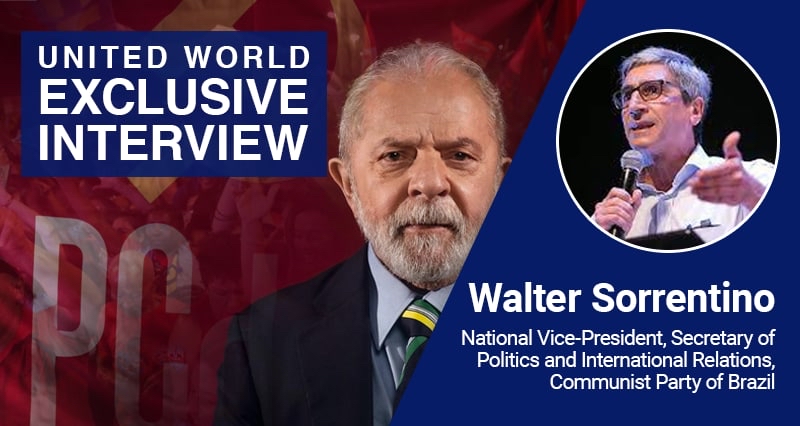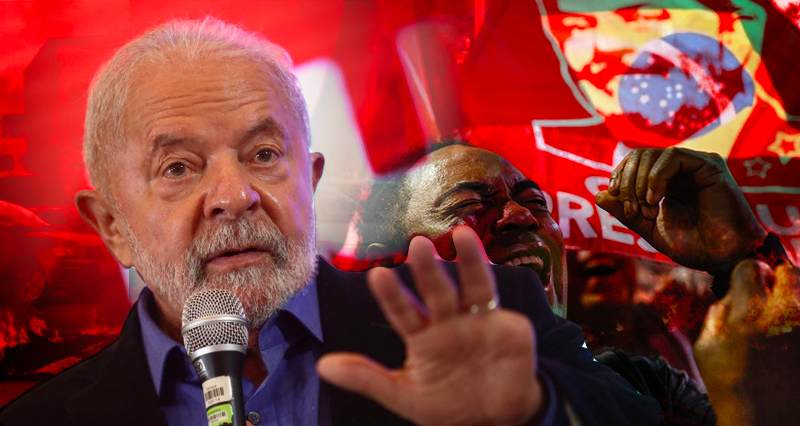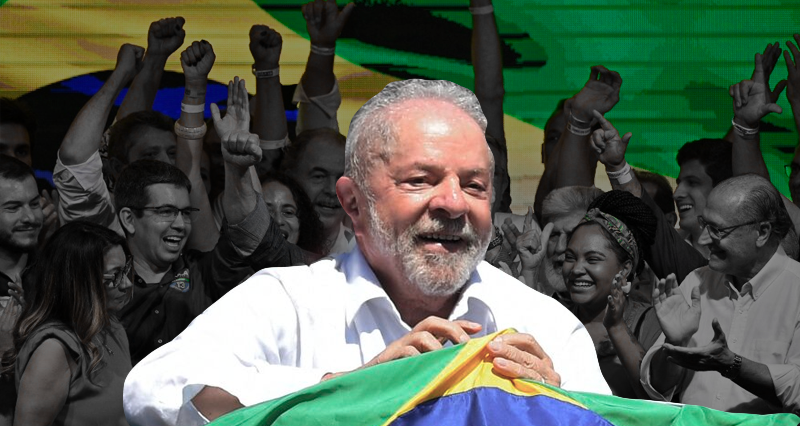Last week witnessed important developments in Türkiye’s electoral agenda and international relations. The candidates nominated by the Nation Alliance sparked controversy, especially within the Republican People’s Party (CHP) grassroots. Apart from the electoral agenda, the Turkish Navy fulfilled one of its most important projects. The launch of TCG Anadolu, the world’s first drone carrier ship, left its mark on the ...
Sinan Oğan, the fourth candidate in Türkiye’s May 14 presidential (and also parliamentary) elections, is a former deputy from the Nationalist Movement Party (MHP), which is now Erdoğan’s ally. Born in 1967 in Iğdır, Türkiye’s easternmost city bordering Armenia and Iran, Oğan is the youngest of the presidential candidates. The characteristics of the Victory Party (Zafer Partisi) chaired by Ümit ...
Muharrem İnce, the leader of the Homeland Party, has become the third presidential candidate for the May 14 elections. He followed Recep Tayyip Erdoğan, the leader of the People’s Alliance and Kemal Kılıçdaroğlu, the leader of the Nation Alliance. İnce was a former Republican People’s Party (CHP) member and the party’s presidential candidate in the 2018 presidential elections. He founded ...
Three issues stood out last week on Türkiye’s electoral agenda: The PKK terrorist organization’s statement on the elections; new negotiations within the electoral alliances and Erdoğan’s economic measures towards the elections. PKK calls to overthrow Erdoğan The PKK, responsible for the deaths of more than 40,000 people with terrorist acts in Türkiye since the early 1980s, has announced its decision ...
Türkiye’s electoral agenda continued to advance at full speed last week. Last week saw three important developments. The campaign for 100,000 signatures of candidates from parties without parliamentary seats to run for the presidency concluded yesterday and the presidential candidates for the May 14 elections were formalized. New parties have joined the AKP-led People’s Alliance. Doğu Perinçek, the leader of ...
Türkiye counts down to the May 14 elections. The ruling Recep Tayyip Erdoğan’s People’s Alliance is opposed by the Nation Alliance, a coalition of six parties, led by Kemal Kılıçdaroğlu, the leader of the Republican People’s Party (CHP). The alliance, also known in the public as the “Table of Six”, announced quite late, on March 6, its decision to nominate ...
Türkiye’s electoral agenda continued to advance at full speed last week. AKP and CHP officials’ meetings with US counterparts and their statements on Türkiye-US relations became the top topic. Another issue was the AKP’s negotiations with the radical religious party HÜDAPAR on whether this party would join the People’s Alliance. The talks between the Nation Alliance and the HDP, known ...
The common opinion across the political spectrum is that on May 14 2023, Türkiye will hold the most important election in the history of the 100-year Republic. This is the prevailing opinion in the world too. In a country of 85 million inhabitants, although the exact number has not yet been announced, more than 60 million voters (64 million according ...
The victory of Luiz Inacio Lula da Silva, better known as ‘Lula’, in Brazil keeps on fueling hopes, disillusions, debates and questions in Latin America and worldwide. What does it mean for the country’s foreign and domestic politics? How will Lula govern, given he is facing a conservative majority in the parliament? How will Jair Bolsonaro, who already had contested ...
By Ana Laura Dagorret / Rio da Janeiro* Bolsonaro’s defeat in last Sunday’s presidential election in Brazil reveals two scenarios. On one hand, the political and economic direction to be taken by the government that will take office on January 1. On the other hand, the political future of the greatest extreme right-wing leader that the South American giant has ...
By Fernando Esteche * Lula achieved, despite the very complex architecture of alliances that he developed, 2 million more votes that allowed him to maintain his minimal advantage to consecrate himself as the electoral winner. In São Paulo and Rio de Janeiro the elected president lost. In Minas Gerais there was a technical tie. The surpassing 3,300,000 votes that he ...
Reporting from Brazil Brazil is going through a decisive moment in its history. We are just a few hours away from knowing who will be the head of the Executive Power for the next four years in the largest economy and in the largest democracy in Latin America. Although this is happening in the post-pandemic era, we are clearly still ...








